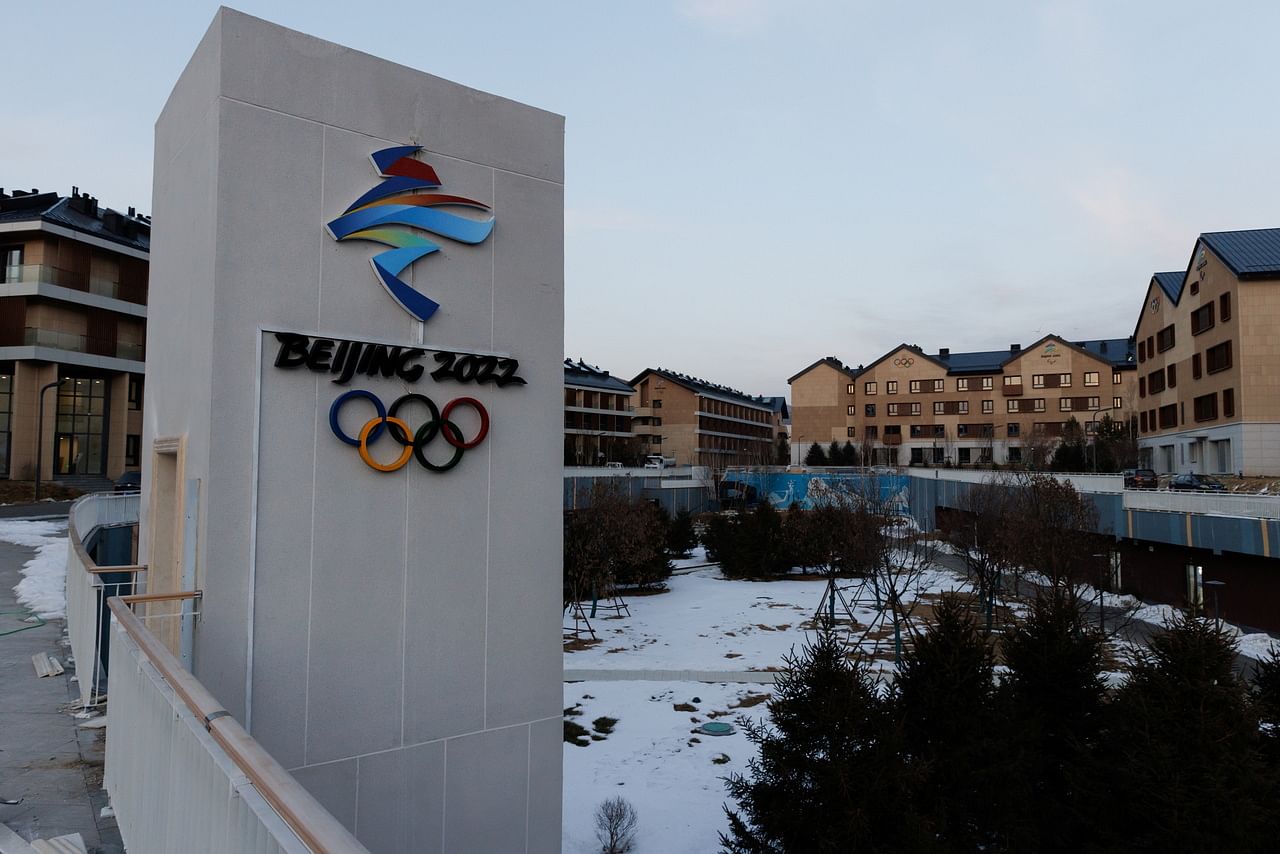China slams US boycott of Winter Olympics, threatens to retaliate
Sign up now: Get insights on Asia's fast-moving developments

China said the US' "plot" of trying to disrupt the Olympics was doomed to fail.
PHOTO: REUTERS
Follow topic:
BEIJING/WASHINGTON - The United States has announced a diplomatic boycott of next year's Winter Olympics, drawing an angry response from China, which has threatened countermeasures and calls the move a violation of "political neutrality in sport".
American athletes will still be allowed to compete in the Games, but the US will not send any government representatives to the event, the White House announced on Monday. It indicated that the step was a reaction to human rights abuses in China.
China will take "resolute countermeasures", Foreign Ministry spokesman Zhao Lijian told a regular media briefing in Beijing.
"Out of ideological prejudice, the US attempts to interfere with the Beijing Winter Olympics based on lies and rumours, which will only make people see the sinister intentions of the US," he said.
"The US will pay a price for its erroneous actions," he said. "You may wait and see."
Mr Zhao added that Washington should stop engaging in what he said are "words and deeds that undermine the Winter Games".
"Otherwise, it will undermine the dialogue and cooperation between the two countries in a series of important areas and international and regional issues," he said.
After a virtual meeting last month between US President Joe Biden and Chinese President Xi Jinping, ties have thawed slightly between Beijing and Washington, with both sides agreeing to increase cooperation on a broad range of issues.
US Trade Representative Katherine Tai has also said the Biden administration was getting traction with China in talks over Beijing's compliance with a Trump-era trade deal, following years of rising tensions over trade.
But the diplomatic boycott of the Winter Games threatens to raise tensions again.
Set to begin in just under two months, the upcoming Games have been increasingly mired in controversy with a number of Western countries looking to either boycott or skip the event over what they say are China's human rights abuses in Xinjiang and other areas.
Announcing the boycott, White House press secretary Jen Psaki said sending US diplomatic or official representation "would treat these Games as business as usual, in the face of the PRC's egregious human rights abuses and atrocities in Xinjiang, and we simply cannot do that". She was using the country's official name, the People's Republic of China.
The US position is that Beijing's policies regarding Uighur Muslims in the Xinjiang region, which it says include restrictions on their freedoms, surveillance and forced sterilisations, amount to genocide.
China has vigorously denied the accusations, defending its actions by saying they have been necessary for counter-terrorism.
The US will host the 2028 Winter Games in Los Angeles, raising questions about whether China might seek to snub that event in response.
Similar tit-for-tat boycotts occurred in 1980, when the US barred its athletes from competing in the Olympic Games in Moscow and led a 65-nation boycott to protest against the then Soviet Union's invasion of Afghanistan.
Four years later, the USSR and its allies shunned the 1984 Games in Los Angeles in retaliation.
But the boycott was deeply unpopular among athletes, who lost their chance at glory. Nearly half of the 466 members of Team USA that year never had another shot at the Olympics.
Sporting organisations, including the United States Olympic and Paralympic Committee, had campaigned against an athlete boycott, protesting that it harms only athletes and has little effect on a country's policies.

